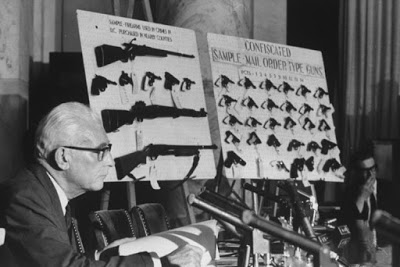Gun control, white paranoia, and the death of Martin Luther King, Jr
 |
| Rich Benjamin 06/08/2019 |
“A distinct strain of white paranoia permeates the cheerleading for the Second Amendment. Gun enthusiasm pervades the white survivalist’s imagination.”
Not even forty-eight hours after Martin Luther King, Jr., was murdered, on April 4, 1968, twenty-eight thousand members of the National Rifle Association alighted on Boston for their annual convention. In the Boston Sheraton, venders peddled the “Kennedy Special,” the rifle that Lee Harvey Oswald had bought by mail order for nineteen dollars and ninety-five cents from an ad in the N.R.A. magazine American Rifleman and used to assassinate the President, five years earlier. At the meeting, N.R.A. leaders warned the group’s nine hundred and sixty thousand members—a fraction of the roughly five million members it has today—that a gun-control bill proposed by Senator Thomas J. Dodd, of Connecticut, days after King’s body was flown from Memphis to Atlanta, would end “the private ownership of all guns.”
Dodd and other gun-control supporters hoped that King’s death might lead to the passage of legislation that had been blocked repeatedly in Congress since John F. Kennedy’s assassination. “I hope that this brutal, senseless killing will shock the Congress into backing me in this fight to take the guns from the hands of assassins and murderers,” Dodd said. His Senate colleague Daniel Brewster, of Maryland, added that King’s assassination “brutally dramatized the need for controls on the sales of weapons that lead to violence.” For its part, The Nation insisted that “the most practical memorial to Dr. King—and to Kennedy—would be a tight gun control bill, passed immediately.”


